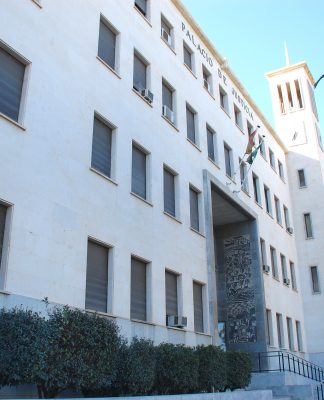Moraira
April 29, 2017
When I voted in favour of the United Kingdom’s continued membership of the European Economic Community in 1975, I was in favour of the UK being part of a European trading bloc. In the 42 years that have elapsed since that vote, the EU has changed beyond recognition.
The changes have been in two main directions; Expansion and Ever Close Union. When we joined the European Union on Jan 1st 1973, we did so with Denmark and Ireland, increasing the number of members from six to nine. Expansion has seen the number of countries triple. Ever Closer Union has so far included the single currency, the removal of borders, common fisheries, a European Bank and many other institutions, plus proposals for a European army. I suspect that had the Europeans confined their ambitions to one of these two directions, the whole European project would be more likely to succeed.
I have become increasingly aware of the amount of waste involved in administering such a cumbersome group of countries, each with its vested interests. The French insistence that each month, all 751 MEPs plus their papers and official documents are transported 400 kilometres from Brussels to Strasbourg and back is estimated to have cost £2 Billion to date. The EU has 24 official and working languages including Irish and Maltese. To manage all the languages there are 1,750 linguists and 600 support staff bolstered by a further 600 full-time and 3,000 freelance interpreters.
If an Irish MEP met a Maltese MEP in a Brussels bar it is inconceivable that they would speak anything but English. It would probably be the first language in one case and an incredibly familiar language in the other. Both countries have exercised their right to have their own language recognised by the EU necessitating the employment of hundreds of linguists and interpreters. I suspect a large proportion of official documents in their governments are in English anyway.
The salary levels of European Union officials are so high that 10,000 of them are better paid than our prime minister. EU officials’ salaries are further inflated by special low tax rates, resulting in a tax bill of less than half of that of a UK worker on a similar salary. The EU has repeatedly refused to publish details of the take home pay of its 47,000 staff. The net result after low tax rates and an abundance of employment perks, means that even a mid-ranking EU official has a net annual income of over £83,000.
There is a debate about whether the EU accounts are signed off by their auditors. There are degrees of concern, ranging from corruption to ‘Poor value for money.’ 80% of the budget is spent by member countries and there are numerous instances of money being wasted: in 2014, Poland built three airports; Lodz, Rzeszow and Lublin, which have received more than €100m of EU funding. The airports did not attract enough customers to keep them open.
Of the 19 EU financed motorway projects across Europe, 14 have reported much less traffic use than had been expected. A six mile stretch of new motorway on the route from Algeciras to Barcelona which cost €280m has seen less than half the amount of traffic predicted. Anyone driving around the M25 in rush hour might wonder why the motorway money was sent to Spain. The EU has wasted up to €3 billion building motorways that were not needed, according to the European Court of Auditors.
Fraud in the EU affects 0.2% of annual spending. This is ten times the rate of that in the UK. The National Audit Office says fraud across the UK government is 0.02% of total expenditure. The difference of 0.18% seems very little, but when applied to the E.U. budget of €143 billion equals over a quarter of a billion euros per year.
Benefits from EU membership
Of the 28 member states, 18 are currently net recipients of funds and together with single market access, the benefit to them is obvious. The 10 net contributing states tend to have the EU institutions housed in their countries. Belgium and Luxembourg house most of the EU’s administration and benefit greatly because of it. Germany has the European Central Bank in Frankfurt and France has the European Parliament once a month in Strasbourg. There are numerous EU agencies spread across Europe, employing thousands of staff. There has been a move to try to site these agencies in newer EU member countries with mixed success. There are insufficient staff with the required degree of expertise who will agree to live and work in an obscure Polish town with low wages. The UK has only two or three of these agencies; a disproportionately low number, given the size of the country.
It may be that the biggest beneficiary of EU and Eurozone membership is Germany. The export led German economy operates within a deflated currency, giving its industry huge advantages, making exports very competitive and discouraging imports. Germany’s balance of payments surplus surged to a record $285 billion last year. It is now overtaking the Chinese surplus as the largest trade imbalance in the world. The Chinese have repeatedly taken measures to keep the value of yuan down. They have been accused of being currency manipulators by Donald Trump, but whatever they do they cannot compete with the advantage that Germany has from operating with euros.
In the long term, the euro is doomed unless German banks write off huge amounts of Greek debt or Greece leaves the single currency. German voters will not countenance Greek debt being forgiven and so repeated bail-outs are needed to keep Greece operating. The can is repeatedly kicked further down the road, leaving the euro in a state of semi-permanent limbo. It’s a limbo that suits Germany very nicely.
Brexit negotiations
Some anti-Brexit politicians use the term ‘hard Brexit’ to describe a trading relationship on World Trade Organisation terms. They then imply that this would be a disaster for the U.K. If it occurs, it will be a bigger disaster for large parts of European industry, but it is highly unlikely for a number of reasons.
A sensible negotiating position for the British government is to state that we are prepared to continue trading with the EU on our existing terms. There is however, a big problem with this: The EU has to justify the benefits of membership and discourage other countries from leaving. EU negotiators will demand a range of things from a £50 billion leaving charge, to access of UK waters for their fishing vessels. They will want to deny the City of London ‘passporting’ rights to sell financial products within the EU but will expect to continue tariff free exporting to the UK markets of their choice. Because the EU exports vastly more goods to the UK than the other way around, the UK is in a strong position. For example, restrictions on exports of financial services from the UK can be matched with UK tariffs on the import of wine, olive oil and other goods from the EU, French farmers will protest by blocking French motorways and ports and the French government will try to get the EU negotiators to back down. Almost one third of cars sold in the UK are made in Germany and if WTO tariffs were applied, German car exporters would pay £1.8 billion in tariffs. On the other hand UK built vehicles would incur £1.3 billion in tariffs when they went the other way.
German car exporters are somewhat reconciled to paying a 10% tariff on sales in the U.K and some are planning to build more of their cars in the UK to avoid the tariffs and also planning factory closures in Germany.
Trading under WTO tariffs will mean that the UK receives vastly more money in tariffs than UK exporters have to pay out. The UK government will be in a position to reimburse UK exporters from the tariff money received and still be in pocket. This will have the effect of making a £20,000 German car cost £22,000 in the UK whilst a £20,000 UK built car will still cost £20,000 in Germany. The WTO prohibits most subsidies directly linked to the volume of goods exported, but there are numerous ways around the prohibition. If the UK government were to actively start making plans to make payments to exporting companies which would, in broad terms reimburse them for tariffs to be paid to the EU post Brexit, then EU negotiators would be a lot more amenable. Failure to do this makes a WTO 10% tariff on cars more likely, and whilst some production will transfer to the UK to avoid tariffs on German produced cars for the UK market, UK production facilities for making vehicles to be exported to the EU might well transfer to low wage countries like Poland. A lot will depend on whether Angela Merkel is prepared to sacrifice a large part of the German automotive industry in order to keep the remaining 27 EU countries together.
£50 billion Brexit bill
The UK will wish to continue with some of its current arrangements regarding security and scientific research projects which will mean ongoing payments of contributions, but the headline figure of £50 billion is ridiculous and discredits the EU politicians who moot it. A payment of this size would mean the UK continuing to make payments at the current net rate for an additional six years after we leave. A large part of their ‘calculations’ include amounts due for budgets covering periods, years into the future, which have not yet been agreed by anyone. Pension liabilities for EU employees being paid at vastly inflated rates are an EU liability, not a UK one. The nauseating spectacle of senior EU politicians saying, “The UK must honour its obligations” whilst referring to £50 billion needs to be examined. There has been some discussion as to whether Brexit is like leaving a club where no future membership fees are due, or like a divorce where assets and liabilities are split. It is more like a divorce, but thankfully, the only children to worry about are the feeble minded Eurocrats who are trying to extract as much money as they can from the situation, in order to continue funding their extravagant lifestyles.
EU negotiators are insisting that the exit fee, or at least the mechanism for calculating it, is agreed before any trade negotiations can start. The UK should call their bluff and say, “OK, there will then be no agreement.” The representatives of EU exporting countries might then want to re-visit their position, especially if the UK is making plans to reimburse export tariffs to be paid by UK companies.
NATO members’ pledge
There are few things uttered by Donald Trump with which I agree. One of them is the requirement for NATO member countries to honour their commitment to spend 2% of their GDP on defence spending. Very few European NATO members come close to honouring this commitment. Some of the countries clamouring for the UK to stump up £50 billion for a fictitious Brexit charge are the worst offenders. Countries like Germany, Italy, Spain, The Netherlands, Belgium, Luxembourg and the Czech Republic have been taking a free ride on the back of the United States and the United Kingdom. This is in spite of Russian incursions into Ukraine and the annexation of the Crimea. The Russians have spent billions on a new generation of nuclear missiles as well as new tanks and fighter jets. They plan to increase manpower from 70 brigades up to 110 brigades. They have already been moving troops and weapons closer to the borders of NATO members. Their Black Sea fleet, now based in the Crimean port of Sebastopol recently added a dozen warships and patrols Bulgarian, Romanian and Turkish coasts. There have been numerous incidents of Russian planes and ships encroaching into European countries’ airspace and waters. The Kaliningrad Oblast is a Russian enclave on the Baltic Sea between Lithuania and Poland. It is highly militarised and warships based there could control the entrance to the Baltic. In response there are soldiers from a number of NATO countries stationed in Estonia, Lithuania, Latvia and Poland.
Whilst European members of NATO have contributed troops to border areas, they have not spent enough on advanced military hardware. They are prepared to let the UK spend vast amounts of money on building aircraft carriers and maintaining Trident etc. and shelter under the resulting nuclear umbrella. Germany spends 1.19% of its GDP on defence. This means there is a £226 billion gap between what it has committed to spend and what it actually spends. Spain spends 0.91% of GDP on defence (less than half the amount it has committed to spend) and has a shortfall of £109 billion. Luxembourg must be the worst offender of the freeloaders. It has the second highest GDP per capita in the world (after Qatar) and only spends a derisory 0.44% on defence, although some reports say 0.9%.
The lower figure looks more likely because from a population of over half a million, the armed forces consist of 450 professional soldiers, 340 enlisted recruits and 100 civilians. Luxembourg does not have a navy or air force.
Angela Merkel has resisted demands for Germany to increase its defence spending to the pledged 2% and no doubt other EU countries also refuse to spend the amount they have agreed to do.
A typical EU MEP will say in one breath that the UK must honour its commitments and pay the £50 billion Brexit bill, and in the next breath will say that their country does not have to honour its commitment to pay 2% of its GDP on defence spending.
As the UK provides a disproportionate amount of Europe’s defences, it is in Europe’s interest to ensure that the UK has funds available to keep punching above its weight in military matters, rather than attempt to extract every last euro cent for spurious reasons from their military benefactor.
Chris King







































